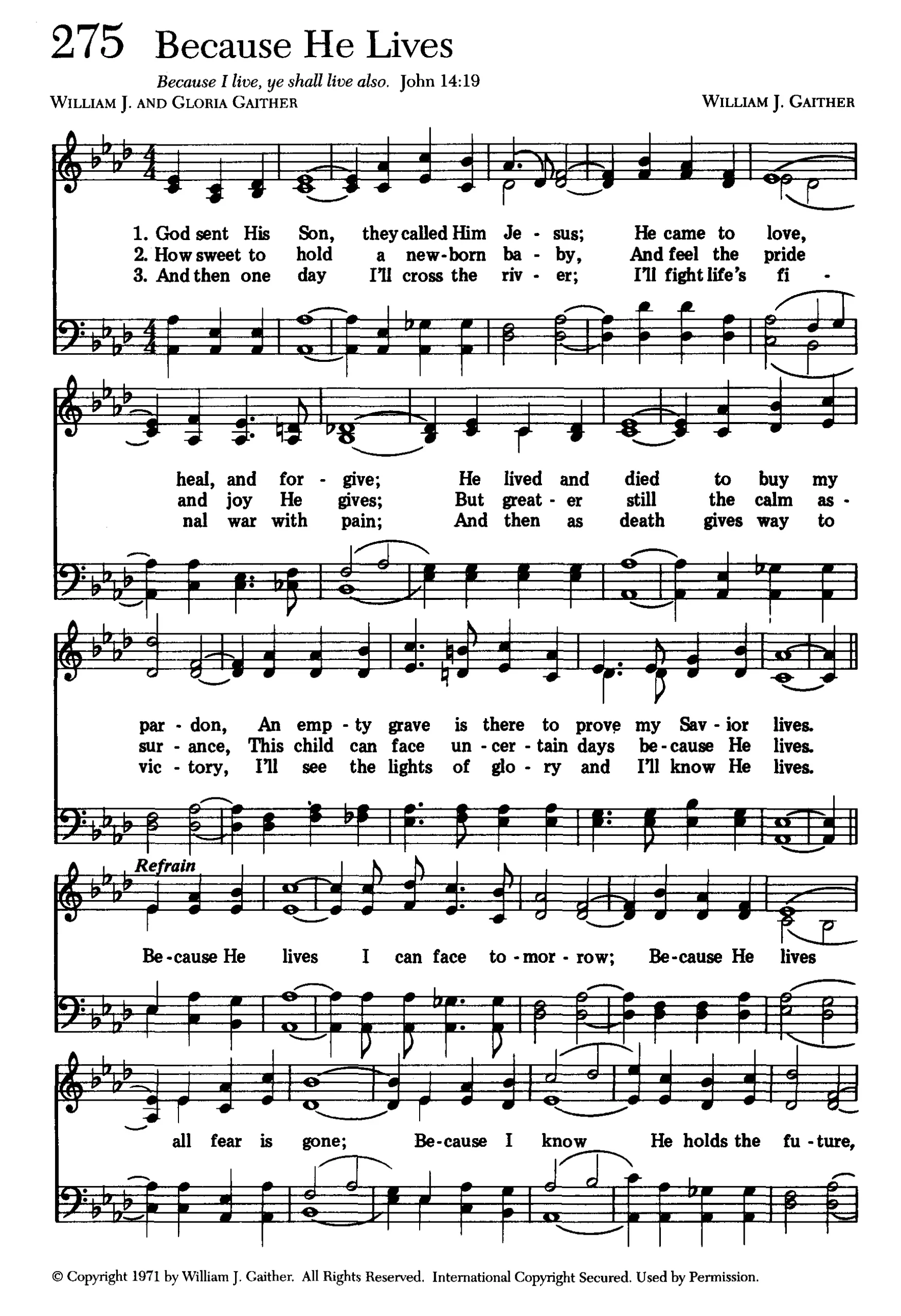Discover the Power and Beauty of Hymn Songs: Your Ultimate Guide to Christian Worship Music
Hymn songs have been a cornerstone of Christian worship for centuries, and it’s easy to understand why. These songs are powerful, meaningful, and serve as a beautiful expression of faith. For those who are new to Christianity, hymn songs can be both beautiful and confusing.
In this article, we’ll explore everything you need to know about hymn songs, from their history and origins, to the different types and their purposes. We’ll also dive into famous hymn songs and their meanings, as well as the role of hymn songs in modern Christian worship.

Whether you’re a new Christian or a long-time believer, this article will give you a deeper understanding and appreciation for the beautiful tradition of hymn songs. So read on to learn more!
An Introduction to Hymn Songs and Their Significance in Christianity.
Hymn songs are an integral part of Christian worship and hold great significance in the faith. These songs have been passed down through generations, with each one carrying a unique message and meaning.

One of the main purposes of hymns is to express devotion to God. They serve as a way for Christians to connect with their beliefs and express their gratitude towards Him. Hymns also play an important role in building community within churches, as they are often sung together during services or gatherings.
But hymns aren’t just about expressing devotion – they also serve as a way for Christians to learn more about their faith. Many hymns contain Biblical references or tell stories from Christian history, providing insight into the teachings and values that guide believers’ lives.
In addition, hymn songs can be incredibly uplifting and inspiring for those who listen to them. They offer comfort during difficult times, hope amid despair, and encouragement when facing challenges.
Overall, it’s clear that hymn songs hold immense significance in Christianity – both as a means of worshiping God and learning more about one’s faith. Whether singing alone or with others in church settings or at home listening on digital platforms; these timeless melodies continue serving its purpose by connecting people closer than ever before!
The history and origins of hymn songs.
Hymn songs have been an integral part of Christian worship for centuries, with their origins dating back to the early church. The term “hymn” comes from the Greek word hymnos, which means a song of praise or devotion.
The earliest Christian hymns were likely simple chants that were sung by congregations during worship services. Over time, these chants evolved into more complex and structured pieces that became known as hymns. Many well-known hymns today are based on traditional melodies and lyrics that have been passed down through generations of worshippers.
One significant contributor to the development of modern-day hymns was Isaac Watts, a prolific English writer who lived in the 18th century. He is often referred to as the “father of English hymnody” because he wrote hundreds of new religious poems set to popular tunes at the time.
In addition to Watts’ contributions, many other composers throughout history have left their mark on Christian music through their compositions and arrangements for choirs and instruments.
Despite changes in musical styles over time, one thing remains constant: Hymn songs continue to play an important role in Christian worship around the world. They provide a way for believers to express their faith collectively while drawing inspiration from timeless melodies and lyrics steeped in tradition.
As youth pastor at our church here at [church name], I encourage you all reading this article section about Hymn Songs not only learn about its history but also embrace it as part your personal spiritual journey towards Christianity!
Different types of hymns and their purposes.

Hymn songs have been an integral part of Christian worship for centuries, and they come in a variety of styles and purposes. Understanding the different types of hymns can help us connect more deeply with our faith and express our devotion in unique ways.
One type of hymn is the praise and worship song, which celebrates God’s greatness, power, love, and mercy. These songs often have a modern sound that resonates with younger generations while still honoring traditional Christian values.
Another type is the gospel song that emphasizes personal salvation through Jesus Christ. These songs often tell stories or testimonies about how people found redemption through faith in Jesus.
There are also hymns that focus on specific events or themes such as Christmas carols or Easter hymns. These songs allow us to celebrate special occasions within our faith traditions while connecting with other Christians all over the world who share these same rituals.
Finally, there are contemplative or reflective hymns that invite us to meditate on God’s grace and presence in our lives. They provide comfort during difficult times by reminding us of God’s constant love for humanity regardless of circumstances we face daily
In conclusion: Whether it be praise & worship music to celebrate His greatness; gospel music emphasizing personal salvation; themed music marking special occasions; reflective pieces designed for meditation—Christianity has numerous forms expressing one’s spirituality through various mediums like Hymn Songs!
Famous hymns and their meanings.
Hymn songs have been an integral part of Christian worship for centuries, and their melodies and lyrics continue to resonate with believers around the world. These songs are not just mere tunes, but they hold deep meanings that offer insights into Christian beliefs and theology.
One such famous hymn is “Amazing Grace.” Written by John Newton in the 1700s, this song tells the story of his conversion from a slave trader to a follower of Christ. The lyrics speak about how God’s grace saved him from his sins and gave him hope for eternal life. This hymn has become synonymous with repentance, forgiveness, and redemption.
Another popular hymn is “How Great Thou Art.” Originally a Swedish folk song translated into English by Stuart K. Hine in the 1950s, this song praises God’s creation as well as His love for humanity. The lyrics describe nature’s beauty while also acknowledging mankind’s insignificance compared to God’s greatness.
“Great Is Thy Faithfulness,” written by Thomas Chisholm in 1923 is another beloved hymn frequently sung at church services or during times of personal devotion. It reminds Christians that no matter what happens in their lives – whether good or bad –God always remains faithful towards them through every situation.

In conclusion these timeless classic pieces help believers express their faith more deeply than words alone can convey; allowing them to sing aloud those innermost feelings which they cannot put into words so easily spoken aloud making faith more tangible through melody!
The role of hymn songs in modern Christian worship.
Hymn songs play a significant role in modern Christian worship. These traditional pieces of music have been passed down through generations and are still relevant today for their spiritual significance and ability to bring the congregation together in song.
Hymns are an essential part of Christian worship because they serve as a means of expressing faith, gratitude, and praise. They also provide an opportunity for believers to connect with God on a deeper level by meditating on the lyrics that articulate biblical truths.
In addition to their spiritual purpose, hymns also have cultural significance within Christianity. Many famous hymns were written during times of great religious awakening or persecution and act as historical markers for important events in church history.
Despite their importance, some churches have moved away from using hymn songs in favor of more contemporary music styles. However, it is crucial not to overlook the value that these timeless melodies can bring to modern worship services.

Hymn songs offer a sense of continuity between past traditions and current practices while reminding us that we stand on the shoulders of those who came before us. Their melodies carry messages that resonate across generations and cultures while serving as tangible links between our present-day experiences with our shared faith heritage.
As youth pastors at Christian churches continue working towards engaging younger audiences’ interests with contemporary musical styles; it is essential not to disregard Hymnal Songs’ relevance completely but rather find ways creatively reintroduce them into Sunday Services.
In conclusion: Hymn Songs may be considered “old-fashioned” by some members within congregations; however, they remain integral parts within modern-day worships when appropriately utilized alongside other genres like Contemporary Gospel Music.
Conclusion
Hymn songs have long been a significant part of Christian worship. From their ancient origins to the contemporary adaptations, hymn songs are an important aspect of our faith that helps us connect with and praise God in ways unique to each generation. If you want to learn more about hymns and Christianity as a whole, join our church for weekly services or one of our youth groups!












